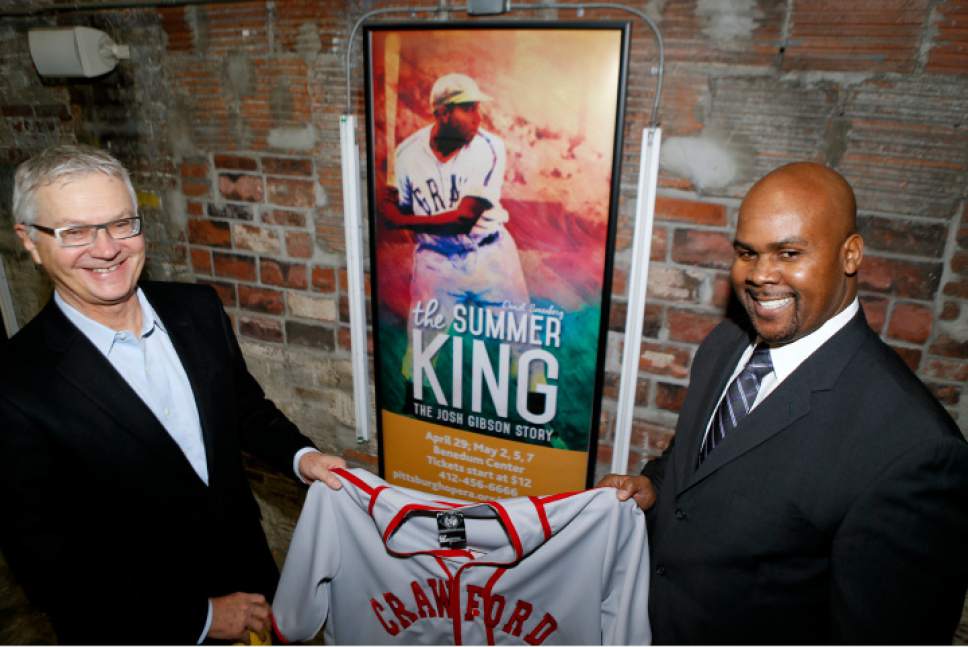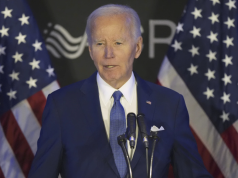
By Beth J. Harpaz
AP Travel Editor

An opera about Negro Leagues’ baseball star Josh Gibson, whose power hitting rivaled Babe Ruth’s, will have its world premiere in Pittsburgh in April.
“The Summer King,” presented by Pittsburgh Opera, premieres April 29. Gibson’s story also figured in “Fences,” the movie starring Denzel Washington that was originally a play by Pittsburgh native August Wilson.
Baseball and opera “don’t usually inhabit the same universe,” said Christopher Hahn, Pittsburgh Opera’s general director. But opera is the perfect medium for telling Gibson’s story because opera allows people “to sing about emotions and aspirations and fears.”
Gibson was one of the first three Negro Leagues players to be inducted into the National Baseball Hall of Fame, which lists his career batting average as .350. He was twice named Negro National League batting champ and led the league in home runs three times. He played for two Pittsburgh teams, the Homestead Grays and the Crawfords.
Gibson died at 35, probably from a brain aneurysm, a few months before Jackie Robinson integrated baseball in 1947.
Gibson’s story is “the story that came before Jackie Robinson,” says Daniel Sonenberg, composer of “The Summer King.” “Josh’s career made the advent of Jackie Robinson possible. It was Josh who played at this high level that caught the attention of white owners. It was Josh who demonstrated it was competitive suicide not to integrate.”
But baseball’s integration led to the Negro Leagues’ shutdown, ending careers for dozens of black athletes who were not among the few chosen for white teams. Both “Fences” and “The Summer King” honor “a whole generation of wonderful players whose livelihoods and social structures got up-ended,” Hahn said.
Several threads in “Fences” echo Gibson’s story. Troy Maxson, the fictional character played by Washington, is a former Negro Leagues star. He tells Gibson’s story, expressing bitterness that he and other ex-players ended up “without a pot to piss in or a window to throw it out.” Maxson’s mistress – like Gibson’s wife – dies in childbirth.
Pittsburgh Opera partnered on “The Summer King” with the Josh Gibson Foundation, run by Gibson’s great-grandson Sean. He says that while “Fences” brought some attention to his great-grandfather, the opera will tell a fuller story.
“Most people know the story of Josh Gibson as a baseball player, a home run hitter compared to Babe Ruth with outstanding statistics, in the Hall of Fame,” Sean Gibson said. “But behind the uniform was a great man who lived through tragedy outside of dealing with racism and playing baseball: His wife died giving birth to their twins.”
The opera also portrays Gibson’s career playing abroad in Cuba, Mexico and elsewhere. “Over there they didn’t have to deal with racism,” said Sean Gibson. “You’re going over to Latin countries, your skin color is the same color as theirs.”
Nearly all 14 principal roles in “The Summer King” are played by African-Americans, a rarity in operas (“Porgy and Bess” notwithstanding). Renowned mezzo-soprano Denyce Graves plays Gibson’s lover. Bass-baritone Alfred Walker, who plays Gibson, told the New Pittsburgh Courier that playing “someone that looks like me” is “an amazing opportunity.”
A ballfield named for Gibson is located at 2217 Bedford Ave. in Pittsburgh’s Hill District neighborhood, not far from the August Wilson House, the late playwright’s childhood home. The August Wilson House hosts a block party April 29, starting at noon, just a few hours before the opera premiere, to mark Wilson’s birthday.
The Michigan Opera Theatre in Detroit plans to stage “The Summer King” in March 2018.
A concert performance of an earlier version of “The Summer King” was staged in 2014 in Portland, Maine, but Pittsburgh’s production is the first staging of the completed opera. Sonenberg is a music professor at the University of Southern Maine.




